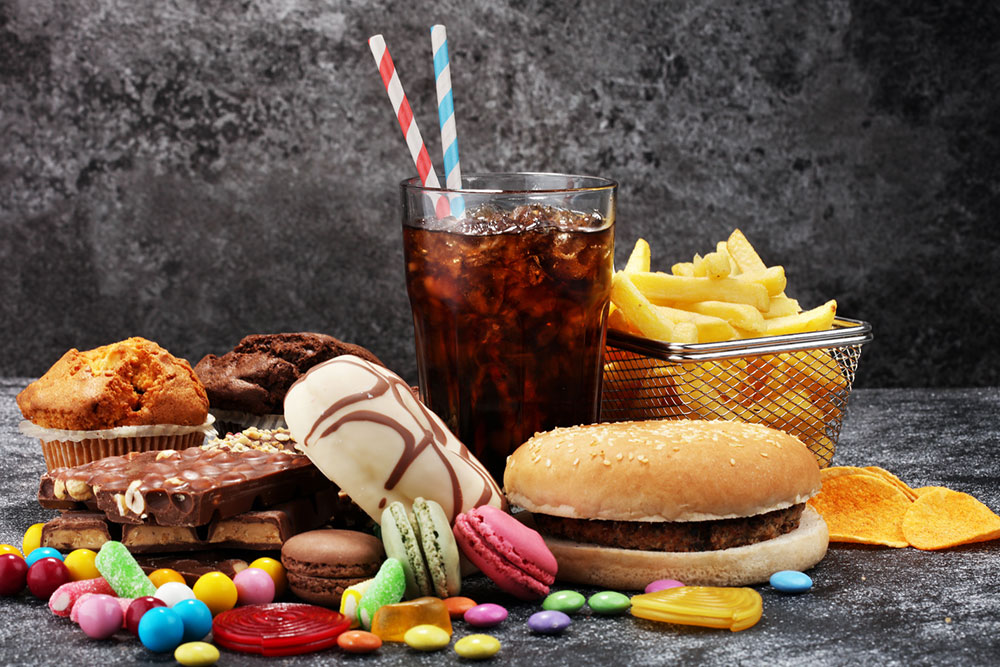9 unhealthy foods for the teeth

Staying healthy involves caring for multiple aspects of the body, including the teeth. But this must be done by eating healthy foods or following other hygiene routines. Keeping the teeth in top health also depends on one’s ability to avoid unhealthy habits, such as certain meal choices that may worsen oral health. Here are some of the worst foods that one should avoid to improve the condition of their teeth.
Ice
Many enjoy munching on ice because it is often fun and can help cool the body. However, doing so can also prove otherwise, especially regarding oral health. Ice is a hard substance that may affect the enamel. It could also result in chipped, cracked, or broken teeth. Biting into ice may also adversely affect and loosen one or more crowns in the mouth. However, if one wishes to enjoy ice, they could add it to their beverage or a glass of water instead of chewing it directly.
Bread
Bread is common in most people’s meal plans, whether for breakfast, lunch, or dinner. It can be enjoyed by toasting it or spreading it with something delicious. Unfortunately, bread is one of the worst foods for dental health. When we chew bread, it turns into sugar due to the interaction with saliva. This paste-like substance can stick to the small spaces between teeth and cause cavities. Therefore, it is recommended to avoid bread and choose whole wheat alternatives, which contain less sugar and do not break down as quickly.
Citrus fruits
Someone who enjoys eating citrus fruits may receive a healthy nourishment such as vitamin C. But too many citrus fruits, such as lemons or oranges, could harm teeth health. The fruits are acidic, which makes the teeth susceptible to decay. Even squeezing a lime in water could introduce acid, which is unhealthy for the teeth. Moreover, those with mouth sores should avoid citrus fruits as they could trigger irritation in the affected region. If one requires the nutrient content from citrus fruits, they should eat the fruit by itself or drink its juice in moderation during meal times but rinse their mouth immediately.
Dried fruits
Dried fruits such as prunes, figs, raisins, and apricots offer various health benefits, but excessive consumption of these fruits can damage the teeth. These fruits are sticky and tend to cling to the teeth when bitten. They also get trapped in the crevices of the teeth, leaving a sugary residue in the mouth. This process can lead to conditions like cavities, which harm oral health. If you enjoy eating dried fruits, rinse your mouth thoroughly and follow up with brushing and flossing.
Apple cider vinegar
Liquids like apple cider vinegar are one of the richest sources of maintaining overall health. But this could be harmful for someone who needs to care for their oral health. The vinegar is acidic and known to wear down the enamel, which may cause the teeth to decay and cause permanent damage. Diluted apple cider vinegar is good for one’s health and might not harm the teeth as long as one consults with an expert before having it and does so in moderation.
Coffee
Sipping on a mug of coffee is one of the most preferred choices to give one an energy boost to stay focused or get more energy to work longer hours. However, this beverage contains caffeine, which is unhealthy for the body when consumed excessively, damaging the teeth. Coffee is acidic and is known to wear out the tooth’s enamel. One should also note that the drink contains tannins, which are molecules that cause color compounds to stick to the teeth. If one wants to enjoy a hot cup of joe, one should drink it in moderation and consider consuming it through a straw. They must also brush their teeth after consumption to prevent excessive tooth damage.
Potato chips
Potato chips are a popular snack for people craving a flavorful and crunchy treat. However, it’s crucial to understand that these chips are processed, and consuming them regularly can harm our overall health, particularly our teeth. Potato chips contain a high amount of starch, which can quickly turn into sugar and get stuck on or between teeth, providing an ideal breeding ground for bacteria to thrive in plaque, leading to tooth decay and gum disease. Additionally, potato chips are highly acidic, and due to their sticky nature, the acid lingers on the teeth for a more extended period, causing further damage. Therefore, practicing healthy dental habits, such as brushing and flossing daily, is essential to remove food particles and bacteria from the teeth and gums.
Carbonated beverages
It is acceptable to enjoy consuming carbonated drinks occasionally, but excessive intake of these beverages can have harmful effects on teeth. This is because the fizzy drink can stimulate the production of acid, leading to the generation of plaque and enamel deterioration. Drinking carbonated beverages may also cause the teeth to be coated with acid, reducing saliva production and resulting in a dry mouth. Additionally, dark-colored sodas can stain or discolor the teeth, which can be difficult to fix.
Sour candies
While sour candy can be a tempting treat, consuming too much of it could have detrimental effects on oral health. Sour candies are packed with acids that are harsher on tooth enamel than regular candy, and when chewed, the mixture can cling to teeth for extended periods. This prolonged exposure to acidic residue increases the risk of tooth decay. In contrast, a bar of chocolate can be a better alternative if one must indulge, as it is easier to chew and rinse away. Nevertheless, it is essential to consult a dentist to assess whether sugary treats are suitable for one’s oral health.







